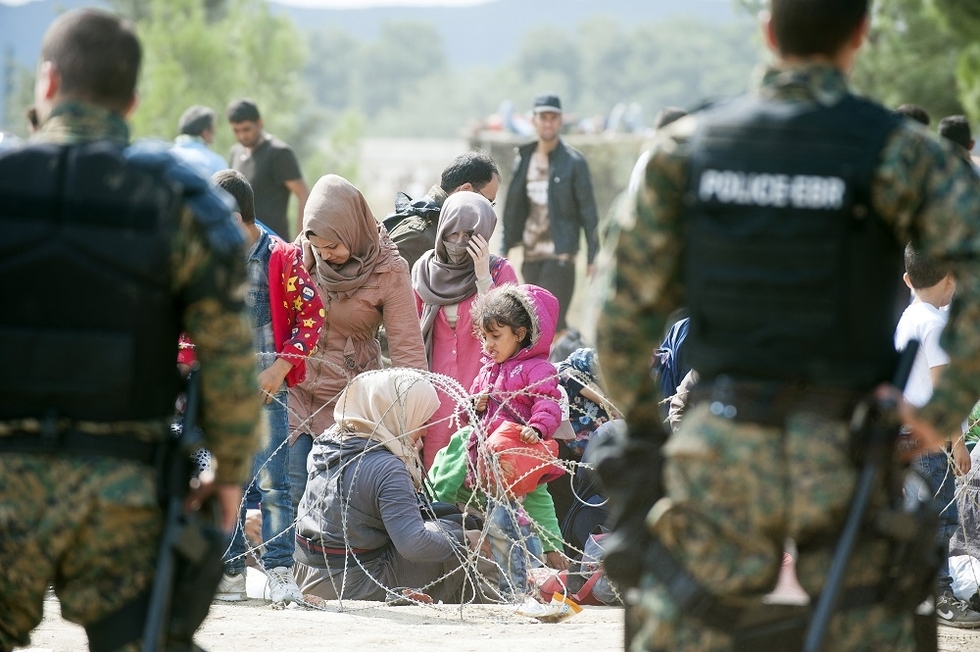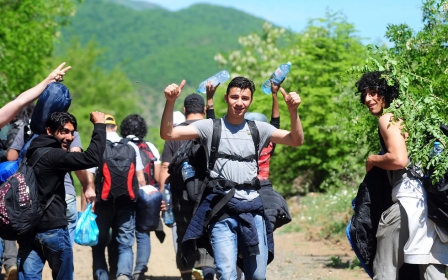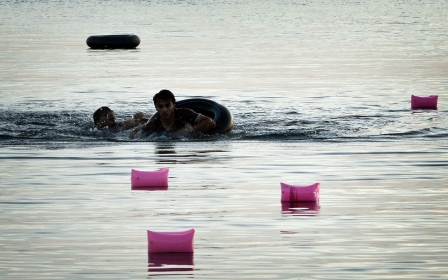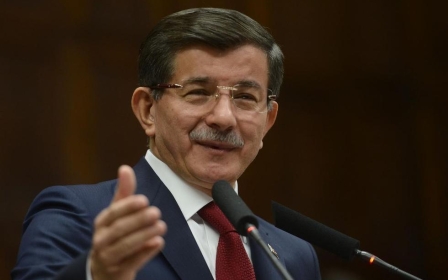Macedonia to allow 'vulnerable' migrants to cross border after clashes

After clashes between police and mostly Syrian migrants at its border on Friday, Macedonia said it would allow a limited number of "vulnerable" migrants to enter the country.
The announcement came hours after the country declared a state of emergency and sealed its border with Greece, leaving more than 3,000 refugees stuck in no-man's land near the Greek village of Eidomeni.
"A limited number of illegal migrants in vulnerable categories are allowed to enter Macedonia and they may be provided aid in accordance with the state's capacities," the Interior Ministry said in a statement.
It did not say what the vulnerable categories were. Temporary transit documents were issued to 181 migrants, mostly from Syria, Bangladesh and Pakistan, police told AFP.
Bulgaria also said late on Friday that it was ready to dispatch its armed forces to secure its southwestern borders with Greece and Macedonia against any fresh influx of refugees.
Before Macedonia declared a state of emergency on its southern border on Thursday, it was issuing an average of 1,300 such documents a day, it added.
At least five people were hurt in border clashes earlier on Friday when Macedonian police threw noise grenades and tear gas to drive back migrants from the border with Greece, the latest flashpoint in Europe's growing refugee crisis.
Police in riot gear fired the grenades after hundreds of migrants, included women and children, tried to cross newly-laid rolls of barbed wire along the frontier, an AFP photographer at the scene said.
The grenades sent up clouds of smoke and sent the refugees running for cover, the photographer reported, with those hurt only slightly injured with cuts to their legs from fragments of the grenades as they exploded.
The confrontation lasted only a few minutes with the migrants trying to calm the situation by putting women and children between them and the police.
The Macedonian authorities, however, denied any clashes had taken place. Interior Ministry spokesman Ivo Kotevski told AFP there was "no incident, no tear bombs... nothing like that on Macedonian side".
Police had earlier prevented reporters from accessing no-man's land where on Thursday officers had been in a standoff with about 1,500 migrants and refugees who wanted to cross into Macedonia.
But with the numbers of refugees blocked on the Greek side building up during the night, tensions rose.
"The Macedonian police told us last night that they would allow us to cross at 10 am (07H00 GMT) but they didn't," a 27-year-old Syrian said.
Macedonian police also stepped up their presence at the train station in the border town of Gevgelija, where thousands of migrants who had been arriving daily previously were given temporary documents allowing them to cross Macedonia so they could travel on to Serbia and the main European Union frontier.
But on Friday police were not issuing the documents to newly arrived groups, prompting exhausted refugees to fear that they would be sent back to Greece.
"They don't give us papers, so maybe they want to bring us back to Greece," a 24-year-old man from Damascus told AFP.
"We don't want to go back, we are very exhausted from walking," said the biology student, who asked not to be named.
"We are exhausted from the situation in Syria. My father died from a shell. I had to leave, I have no one there any more. I want to continue my education in some other country, I don't want to go back to Syria," he said.
But a few hundred Syrians did manage to slip across the border during the night, witnesses said, taking to the forested hills with the help of the GPS on their mobile phones to walk around police and army lines concentrated on the plain below.
EU doing 'too little'
The standoff on the Greek-Macedonian border is the latest flashpoint in what the EU itself last week called the biggest migration crisis the continent has faced since World War II.
Europe's interior and foreign ministers will meet in mid-October to discuss how to respond to the huge influx of migrants and refugees arriving at its borders.
The meeting, to be followed by further talks in Berlin, will pave the way for broader discussions at an EU summit in Malta in November which will also be attended by African leaders, France's Interior Minister Bernard Cazeneuve said after talks with his German counterpart Thomas de Maiziere in the German capital Thursday.
De Maiziere said it was "unacceptable that European institutions continue to work at their current slow pace" in finding a joint solution to the crisis, adding that "too little" was being done to implement decisions that have already been taken.
EU border agency Frontex said Tuesday that a record 107,000 migrants were at the bloc's borders last month, with 20,800 arriving in Greece last week alone. It is estimated that 40,000 migrants have passed through Macedonia in the last two months.
New MEE newsletter: Jerusalem Dispatch
Sign up to get the latest insights and analysis on Israel-Palestine, alongside Turkey Unpacked and other MEE newsletters
Middle East Eye delivers independent and unrivalled coverage and analysis of the Middle East, North Africa and beyond. To learn more about republishing this content and the associated fees, please fill out this form. More about MEE can be found here.




